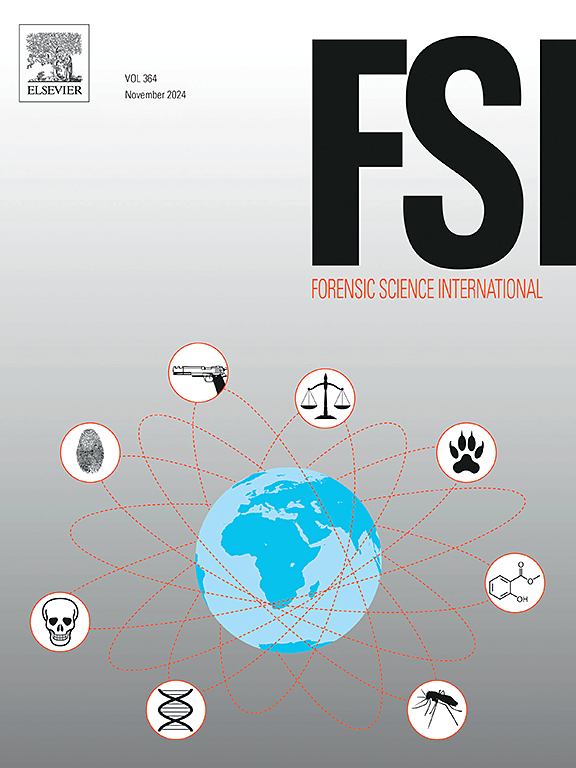KinshipLR:法医遗传学中复杂亲属关系检测的软件开发与应用
IF 2.5
3区 医学
Q1 MEDICINE, LEGAL
引用次数: 0
摘要
由于个体之间遗传信息的复杂性和缺乏对遗传标记有效性的系统探索,复杂亲属关系检测提出了重大挑战。本研究开发了一个名为KinshipLR的R包,用于优化复杂亲属关系检测的生物标志物选择,评估常染色体STRs、snp和X-STRs在各种情况下的疗效。利用中国4个人群的等位基因频率数据,对每个场景进行了1万次模拟,分析了影响检测准确性的因素,包括关系类型、群体背景、遗传标记类型和评估算法。研究结果强调,遗传标记在复杂亲属关系检测中的功效因人群而异。此外,虽然20个CODIS-STRs的独立性能是有限的,但添加27个X-STRs可以显著提高测试场景的准确性,例如全兄弟姐妹、祖母-孙女、阿姨-侄女和半兄弟姐妹。此外,将IBS与SVM相结合的方法在复杂亲属关系检验中优于传统的基于lr的阈值方法。本研究为遗传标记选择提供了量身定制的方法,提高了复杂亲属关系检测的效率和可靠性,并为法医应用提供了有价值的见解。本文章由计算机程序翻译,如有差异,请以英文原文为准。
KinshipLR: software development and application for complex kinship testing in forensic genetics
Complex kinship testing presents significant challenges due to the complexity of genetic information among individuals and the lack of systematic exploration of genetic markers’ effectiveness. This study developed an R package named KinshipLR to optimize biomarker selection for complex kinship testing, evaluating the efficacy of autosomal STRs, SNPs, and X-STRs across various scenarios. Using allele frequency data from Chinese four populations, 10,000 simulations were conducted for each scenario to analyze the factors influencing testing accuracy, including relationship type, population background, genetic marker type, and evaluation algorithms. The findings highlight that the efficacy of genetic markers in complex kinship testing varies among populations. Moreover, while the standalone performance of 20 CODIS-STRs is limited, adding 27 X-STRs significantly improves accuracy in testing scenarios such as full siblings, grandmother-granddaughter, aunt-niece, and half-siblings. Additionally, integrating the IBS with SVM method outperforms traditional LR-based threshold method in complex kinship testing. This study provides a tailored approach for genetic marker selection, enhancing the efficiency and reliability of complex kinship testing and offering valuable insight for forensic application.
求助全文
通过发布文献求助,成功后即可免费获取论文全文。
去求助
来源期刊

Forensic science international
医学-医学:法
CiteScore
5.00
自引率
9.10%
发文量
285
审稿时长
49 days
期刊介绍:
Forensic Science International is the flagship journal in the prestigious Forensic Science International family, publishing the most innovative, cutting-edge, and influential contributions across the forensic sciences. Fields include: forensic pathology and histochemistry, chemistry, biochemistry and toxicology, biology, serology, odontology, psychiatry, anthropology, digital forensics, the physical sciences, firearms, and document examination, as well as investigations of value to public health in its broadest sense, and the important marginal area where science and medicine interact with the law.
The journal publishes:
Case Reports
Commentaries
Letters to the Editor
Original Research Papers (Regular Papers)
Rapid Communications
Review Articles
Technical Notes.
 求助内容:
求助内容: 应助结果提醒方式:
应助结果提醒方式:


